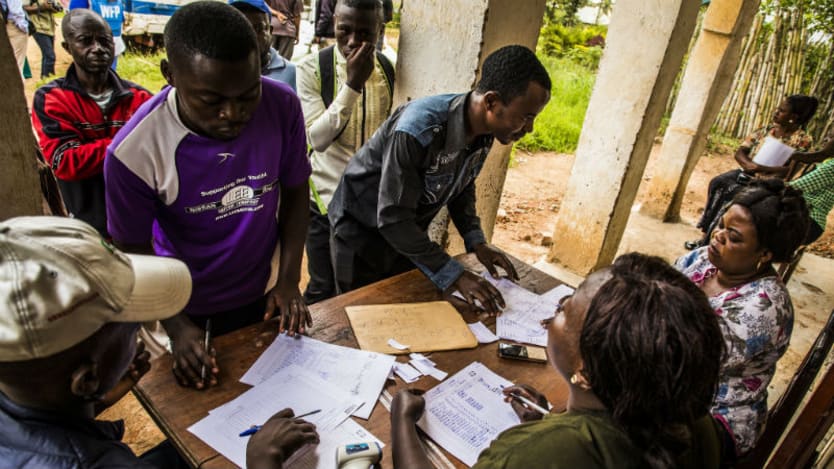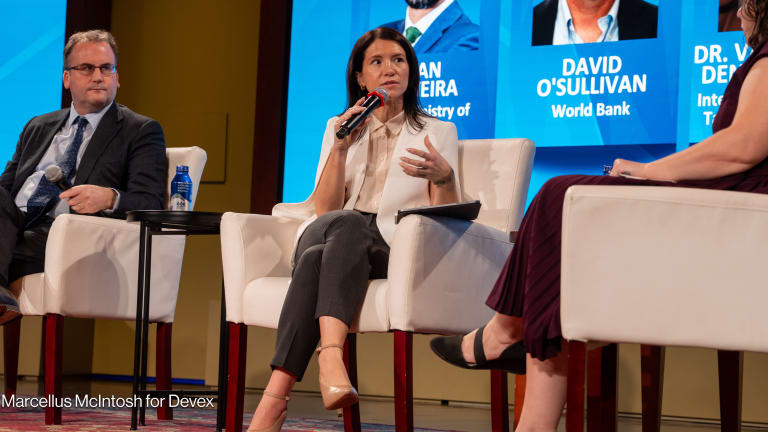Opinion: How we can win the argument for overseas aid

Once again, the United Kingdom has met its commitments to the world’s poorest people and those hit by disaster, providing about £14.6 billion ($18.8 billion) in overseas aid in 2018. At a time when aid spending is falling globally, as the new OECD figures show, it’s more important than ever that the U.K. and a few other countries are keeping our promises to support those in need around the world. This should be a matter of national pride.
Yet, it is an achievement shadowed by skepticism from some quarters about the value of aid. The Boris Johnson-backed Henry M. Jackson Society recently questioned the U.K.’s commitment — enshrined in law since 2013 — to contribute 0.7% of national income to aid, while the Taxpayers’ Alliance called for future aid spending to prioritize Britain’s security and commercial interests over reducing global poverty.
With nationalism on the rise, are aid donors becoming more selfish?
All development donors pursue investments they hope will serve their national interests, but some interpret this more broadly than others, according to a new study from ODI.
These arguments are familiar. But, a decade of austerity at home, topped off by Brexit, is leading some to question Britain’s role on the international stage and to increasingly challenge the previously watertight moral case for making good on our longstanding aid commitments.
Of course, I’m a supporter of the 0.7% minimum — it’s a valuable means of ensuring we maintain our basic human commitment to helping people in desperate need. Other countries should be meeting their promises too. But I’m also clear that if we focus only on this battle, we’re going to lose the war. The argument we need to win is the one about what aid is for, not just how much we need.
This isn’t as straightforward as it sounds. There are those who see aid as a means to multiple ends: money given in the national interest to leverage soft power, to secure favorable trade deals, or to hand out lucrative contracts to private sector companies via tied aid. Critics claim it is guilt money given by rich countries to poor in reparation for the damage done by colonialism. Or that it’s given primarily to fund a development sector that has become an industry in itself.
What aid actually is for is to help the world’s poorest, most vulnerable people. This sounds too simple. But maybe we need to make it simple again.
Last month in the Democratic Republic of the Congo, I met people who have fled brutal intercommunal violence. Now living in camps in desperate conditions, they are facing outbreaks of cholera and the worst incidence of Ebola in the country’s history. Oxfam is providing clean water and sanitation, and working with communities to spread Ebola-prevention messaging. When people question the value of U.K. aid, I want them to see what I saw in DRC. I want them to meet the people I met.
Away from all the political one-upmanship, this is what aid is for. Making a real difference every day to individual lives around the world. Yet the U.N.’s DRC appeal is $1.5 billion short of what’s needed, and humanitarian crises that have left millions of Yemenis and Rohingya refugees in need of support also lack funds.
Maybe during the years of ring-fenced budgets, those of us who work in the sector have lost focus on communicating just how desperate the need and how transformative our actions can be. Perhaps we’ve become too focused on the efficient delivery of big-budget projects or stopped restating the case for aid because we haven’t had to.
Of course, our current system is far from perfect and I’d be the last to defend the status quo. We urgently need to make radical changes to our international development infrastructure and funding mechanisms. Only 1% of all official aid and around 0.2% of humanitarian assistance goes directly to local organizations in the global south. Aspects of the current system, entrench, rather than ameliorate inequality.
All of this and more. We need change and change is already happening at Oxfam and elsewhere. Our sector’s Charter for Change now commits us to deliver at least 30% of our humanitarian work through local organizations, facilitating a crucial shift in power. We have just set out 10 new principles to ensure that aid spending is truly fit for purpose, able to do its job of reducing poverty in a time of growing inequality, of making countries and communities more resilient and self-sufficient, of empowering citizens to hold their leaders to account.
We need this change. But we also need to protect — fiercely — what is good at the heart of our current development system. Our government has made a commitment to end extreme poverty by 2030 and to leave no-one behind. This is what aid is for.
We don’t need to direct overseas aid to our own trading relationships to make it in the national interest. Aid is a “win-win” for the U.K. when it is all about lifting people out of poverty. When the world is a more equal place, everyone wins.
Search for articles
Most Read
- 1
- 2
- 3
- 4
- 5








